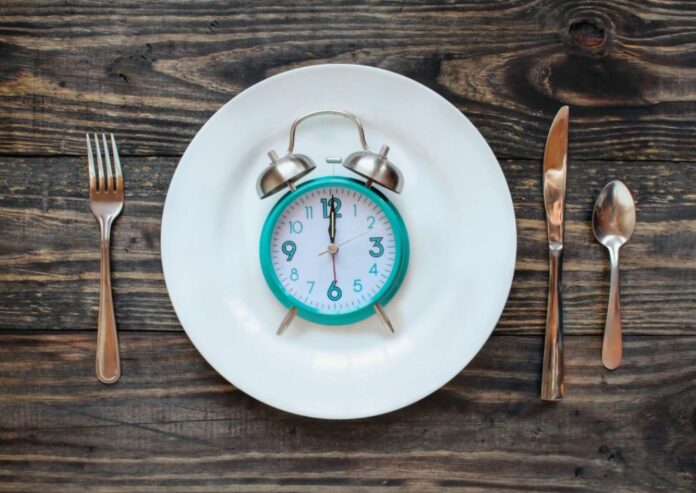There’s a good chance you recognize the phrase “fasting and growth hormone” from a headline you’ve seen before. What exactly is growth hormone? And why are people talking about it in the context of fasting? Growth hormone is a hormone produced in the liver, but it also plays a significant role in other parts of the body.
Growth hormone plays an important role in childhood development, healing, and growth. It plays a role in muscle tissue growth and maintenance, and most importantly, its production is controlled by the brain.
Fasting is one of the oldest practices of fasting food. It is a natural process where the body stop feeding itself food and thus is able to replenish the energy. Fasting for longer periods of time can be dangerous to health because the body goes into starvation mode.
When people think about growing up, they imagine it as a period of time when they’d be bigger and stronger. But how do our bodies get that way and when is it happening? Scientists have long speculated that the way our bodies grow and develop is influenced by our environment.
We know that children growing up in impoverished areas of the world are at a greater risk of stunting, or being short for their age, due to malnutrition. Is it possible that the release of human growth hormone during fasting contributes to muscle development and anti-aging properties?
It’s fascinating to study the physiology of fasting. Starvation’s impact comes not from a simple calorie decrease, but from a positive hormonal shift. The reduction in insulin levels is one of the major advantages, but there is also a rise in noradrenaline, cortisol, and growth hormone levels.
Because they all increase blood glucose levels during a time when the body isn’t receiving glucose from food, these hormones are referred to be counter-regulatory hormones. We’ll concentrate on human growth hormone in this article (HGH).
Hormone of human growth

HGH is a hormone generated by the pituitary gland that aids in the proper growth of children and teenagers, as the name implies. It does, however, play a function in adulthood. In adults, a lack of HGH causes an increase in fat mass, a loss of lean mass (sarcopenia), and a loss of bone mass (osteopenia).
HGH is only in the circulation for a few minutes after it is produced from the pituitary gland. It is transformed to a variety of different growth factors in the liver, the most significant of which being insulin-like growth factor 1. (IGF1).
This is the same IGF1 that has been associated to elevated insulin levels and a variety of negative health consequences, but keep in mind that the IGF1 released by growth hormone is only around for a few minutes at most. Most hormones are produced in brief bursts naturally to avoid the development of resistance, which needs high doses and must be maintained (this is how insulin resistance develops).
In the 1950s, scientists started extracting HGH from cadavers (eeewww), but it wasn’t until the early 1980s that they were able to manufacture it in the lab. It quickly gained popularity as a performance-enhancing substance. HGH levels in the body typically peak throughout puberty and then progressively decrease.
Growth hormone is one of the so-called counter-regulatory hormones that is typically produced during sleep. HGH, like cortisol and adrenaline, increases blood sugar levels by breaking down glycogen, counteracting the actions of insulin. During the counter-regulatory wave, these hormones are typically produced in pulses shortly before waking up (about 4 a.m.).
This is natural, and it helps the body prepare for the day ahead by releasing some of the stored glucose into the circulation, where it may be used as energy. People who claim that you must have breakfast in order to have energy throughout the day are just incorrect.
Your body has already had a good dosage of nourishment and is ready to take on the day. You don’t need to eat sugary cereal and toast with jam to feel energized. This is also why, even if you haven’t eaten in approximately 12 hours, hunger may hit early in the morning (about 8 a.m.).
HGH for muscle development and anti-aging

HGH levels diminish with age, and excessively low levels may result in a loss of muscle mass and bone density. So, what are the consequences of administering HGH to older people who have extremely low levels? A 1990 paper in the New England Journal of Medicine looked into this topic.
The HGH group was number one, while the control group was number two (no HGH). Over the course of six months, there was no difference in overall weight between the two groups. However, take a look at the body fat!
The HGH group acquired 3.7 kg (8.8%) greater dry weight than the control group. That’s a dry weight of 8 pounds! Another 2.4 kg of fat mass was lost! This is a 14.2 percent reduction. My skin’s thickness has also improved. Nellie, you’ve outdone yourself. Increased lean mass and fat reduction (muscle, bone and skin). It’s all about anti-aging, baby!
Similar findings in women were reported in a JAMA paper published in 2002. That sounds fantastic. So why not make it available to everyone? There are such things as side effects, after all. Remember that it was only utilized in this research for individuals with very low HGH levels, not for persons with normal levels.
Blood glucose levels were found to be elevated. HGH is a counter-regulatory hormone, so this makes sense. Prediabetes has also risen dramatically. Increased fluid retention and blood pressure have been reported in the body. There is also a potential danger of more prostate cancer and cardiac issues in the long term (enlarged heart). As a result, this isn’t good news.
As a result, HGH injections are not recommended. What if there was a natural method to increase growth hormone production? What about fasting, for example?
Fasting to boost growth hormone levels

In 1982, Kerndt et al. presented a report on a patient who went on a 40-day fast for religious reasons. The amount of sugar in your blood is decreasing. It has dropped from a high of 96 to a low of 56. Insulin levels plummet.
It rapidly decreases from 13.5 to 2.91 and remains there. That’s a reduction of almost 80%! Fasting is an excellent method to decrease high insulin levels if you have a condition like type 2 diabetes that is linked with hyperinsulinemia.
But in this instance, it’s the HGH that we’re interested in. It begins at 0.73 and reaches a maximum of 9.86. That’s a 1,250% increase in growth hormone. A five-day fast leads in a 300 percent gain in weight. HGH levels rise in this instance without the use of medicine.
What are the potential negative consequences? Is your blood sugar level too high? No. Do you have high blood pressure? No. Is there a higher chance of getting cancer? No, I don’t believe so.
The similar rise in growth hormone has been seen in other investigations. Fasting and HGH levels were studied by Ho KY et al. in 1988. On the control day, it can be shown that eating (marked M) significantly inhibits HGH production. That’s quite typical. When food is consumed, HGH, like cortisol, increases blood sugar levels and is therefore inhibited.
Fasting is an effective stimulator of growth hormone secretion. There is a surge in the early morning hours of fasting, but steady elimination occurs throughout the day. In addition, Hartman et al. found that a 2-day fast resulted in a 5-fold rise in HGH levels.
HGH is thought to aid in the maintenance of lean body mass, which includes both muscle and bone. The loss of lean body mass is one of the most serious consequences of hunger. Some individuals say that fasting for one day leads in a 14-pound loss of muscular mass. This is not the case, according to research. In reality, the exact reverse may occur.
When comparing low-calorie diets to fasting, brief fasting is four times more efficient in preserving lean body mass! Consider that for a moment. Let’s pretend we’re in the Paleolithic era. We eat a lot during the summer of plenty and store part of it as fat on our bodies. There’s nothing to eat in the winter. So, what do you suppose our bodies are up to these days? Should you start burning muscle while keeping the fat you’ve stored? From an evolutionary standpoint, it doesn’t make much sense.
It’s similar to storing wood for a fireplace. In your warehouse, you have a lot of firewood. Indeed, you have so many that they are strewn around your home, and you don’t even have enough space to keep all of your firewood. When it’s time to bake, though, slice up your sofa and place it in the oven right away.
The natural next step would be to start burning the wood that had been stockpiled. In the case of the body, instead of burning muscle, we start to burn stored food (fat reserves). Although some of the protein is catabolized for gluconeogenesis, high HGH levels help to retain lean muscle when fasting (however, this is probably different in people without excessive fat reserves, and in them the loss of lean mass during fasting may be greater).
Athletes’ impact
This has far-reaching consequences for athletes. It’s referred to as “starvation training.” Hunger causes an increase in norepinephrine, which encourages you to exercise more vigorously.
At the same time, the rise in HGH levels induced by fasting should lead to an increase in muscle growth as well as a quicker and easier recovery after exercise. This can represent a significant advantage for high-performance athletes, and despite the dearth of quality data, there is increasing interest in implementing such a program.
It’s no surprise that bodybuilders were among the first proponents of fasting training. It’s a sport that requires, among other things, high-intensity training and a low body fat percentage in order to achieve definition.
Bodybuilders like Brad Pilon, who authored the book Eat, Stop, Eat, and Martin Berhan, who popularized the fasting technique Lean Gains, are also bodybuilders. I don’t believe these two men’s muscles were harmed by their fasting.
So, if you were worried that fasting would make you weary or that you wouldn’t be able to exercise during Lent, I hope this has changed your mind. When there is enough extra fat, fasting does not enable you to burn muscle.
Fasting, on the other hand, may boost HGH’s beneficial benefits while avoiding the drawbacks of too much HGH (prostate cancer, elevated blood sugar, increased blood pressure). The advantages may be even larger for individuals who want to improve their athletic performance.
So, let’s see what happens. Intermittent fasting may benefit if done correctly: More practice is required. Reduce your weight. Recovery time is reduced. Insulin resistance and insulin levels are reduced. Lower your blood sugar levels. All of these advantages are obtained without the need of medications, supplements, or additional expenses. Yes, it’s free, as are all wonderful things in life. So, why are so many people opposed to it?
Jason Fung, Ph.D

The first thing to understand is that, just like with the bodybuilding industry, when it comes to your ‘physique’, you are not just the sum of your genetics. A bodybuilder who got to where they are by eating only chicken nuggets and drinking only Pepsi isn’t the best picture of what a bodybuilder looks like.
You can have genetics that are a perfect match for the bodybuilding industry, but if you follow the wrong nutrition program, it will still show up in your physique as the wrong results.. Read more about growth hormone for height and let us know what you think.
Frequently Asked Questions
How much does fasting increase growth hormone?
Fasting increases growth hormone by stimulating the production of growth hormone releasing factor (GHRF).
Why does growth hormone go up when fasting?
The bodys natural response to fasting is a shift in energy production from glucose to ketones. This shift can be seen as an increase in growth hormone levels.
Does starvation inhibit growth hormone?
Yes, starvation inhibits growth hormone.




